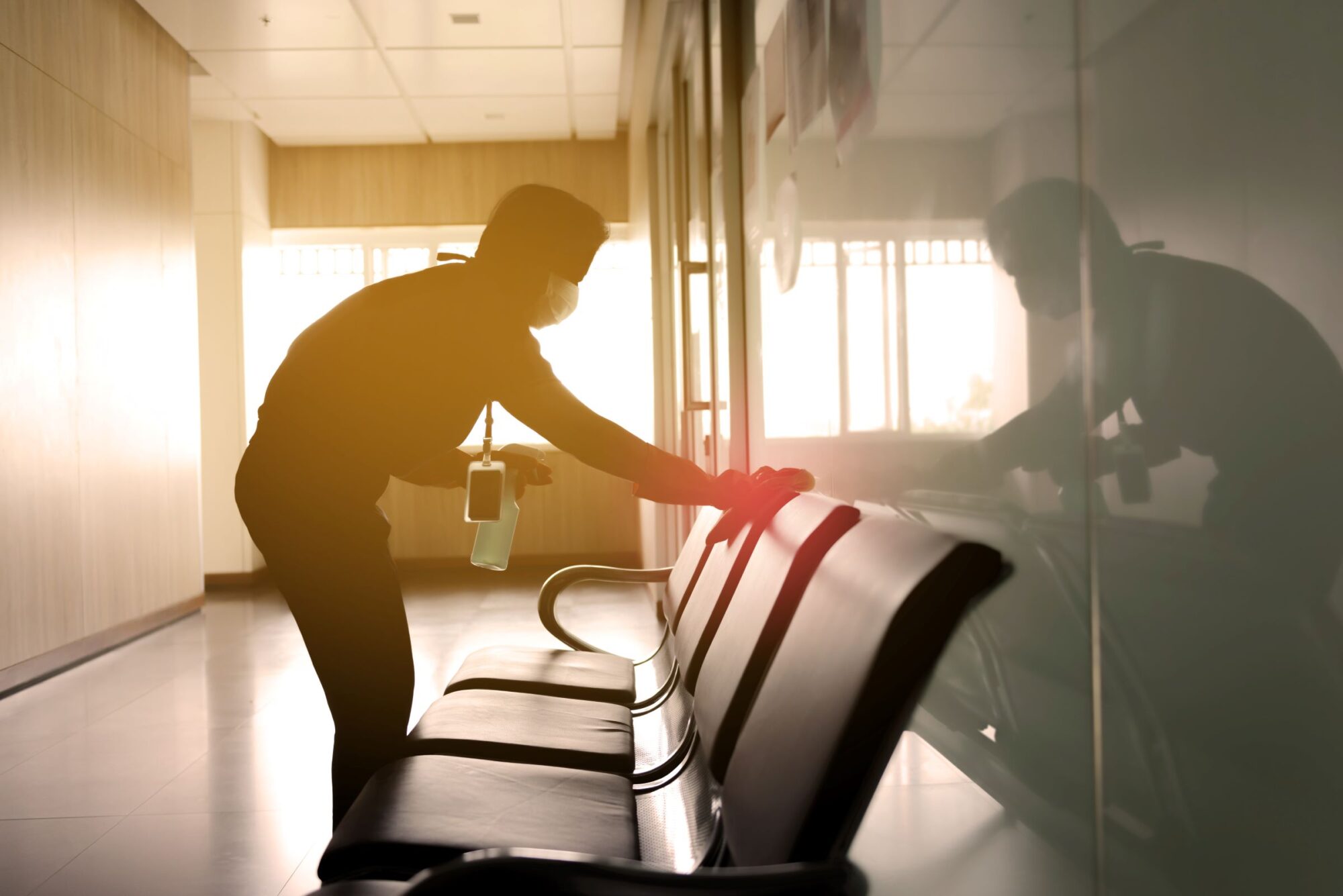During 40 years of working in the cleaning industry, neither I, nor the 1500 staff who make up our family firm, DOC Cleaning, have ever experienced anything like the last seven months. Yes, other industries have gone through the mill, but there are some big differences with commercial cleaning.
For starters, we are on the front line, ‘the fourth emergency service’ as I heard one colleague put it. For us, it has not been an option to shut up shop and wait until it all blows over.
Secondly, as a people industry whose staff are highly exposed, we have had to manage the health and safety of our teams in an unprecedented way, sending them into battle kitted out in PPE we could never have dreamt of needing and using sanitising equipment straight out of Star Wars.
Many Positives to Cheer
In all the turmoil, there has been some heart-warming positivity, with two areas standing out. First is the resilience of staff. I am sure I speak for all companies when I say that our front-line operatives and supervisors have shown immense bravery, with virtually no one failing to attend a shift because they were afraid. Then there are our field managers out there supporting their teams and our HR, payroll and admin teams working around the clock.
Second is the way technology has helped us through the crisis. Video conferencing and chat, WhatsApp Groups, VPNs to support home working, and of course the simple power of global texting to thank staff, reassure them and reinforce guidance on staying safe.
At DOC, we are lucky enough to use a staff training and engagement app that makes important documents accessible to all staff via their smartphones, enabling us to alert them when new documents have been posted. The thought of managing through this crisis in the absence of mobile technology is quite unimaginable.
Restoring Cleaners to Contracts Hasn’t Been So Easy
A major challenge has been the resumption of contracts as buildings begin to open again. Initially the pandemic impacted all cleaning contractors equally as, prior to lockdown, buildings needed disinfectant cleans and deep cleans whilst they continued to be used and occupants needed to be kept safe. Once lockdown was imposed and buildings were mothballed, or occupied by a skeleton staff, cleaning contractors had no option but to furlough the majority of their staff, except in those sectors actually managing the pandemic such as healthcare.
The return to work has been a completely different story, however. On the one hand, the government has been hesitant, and in some cases non-committal, in allowing sectors to reopen. On the other, private companies within the office sector, particularly those who have set up staff up to
work from home, have been free to make their own decision as to when staff should be summoned back into work.
Interestingly, there has been a noticeable divide here between London, where staff rely on public transport to get to work, and other locations where staff can commute to work by car, bicycle or on foot.
In London, around 55% of people normally commute to work by train, compared to only 5% in other conurbations and a mere 1% in rural areas. We can hardly blame companies for being slow to call people back to the office where working from home has been a success. Nonetheless, the uncertainty over the return to work has led to issues in the cleaning sector.
In the absence of a confirmed return date, contractors have had no choice but to make front line cleaning staff redundant, rather than retain them on the basis of an ever-increasing contribution to furlough as we head towards October 31st and beyond. This contrasts noticeably with contractors whose client base is mainly public sector, where cleaning has largely continued as normal, or where the government has insisted on full payment to contractors.
A New Respect for Cleaning
An unexpected, if very welcome effect of the pandemic is that FMs and other staff tasked with protecting the safety of their building occupants are now taking an interest in cleaning like never before. This has led to new-style conversations with cleaning contractors regarding the difference between simple cleaning, sanitising, and disinfecting. Which regime is appropriate to which surfaces? When should they be implemented? What should happen if a building occupant tests positive?
It has also sparked considerable debate at the scientific end of the cleaning industry and many new products have been developed to address different challenges. Daily front line cleaning has been reorganised to focus on new duties such as touchpoint cleaning and regular cleaning of washrooms. Whilst an effective vaccine may well eliminate the fear factor of going about daily life, there is no doubt that the expectations of employees, students, care home residents and all other occupants of commercial buildings will drive a new requirement amongst building managers to protect their stakeholders.
This is good news for cleaning. In truth, cleaning had already evolved into a highly technical industry. A wealth of new equipment and innovative techniques has emerged in the last ten years which, if applied correctly to individual locations, can improve both effectiveness and efficiency. The pandemic, however, has brought the value of cleaning into clearer focus, offering the potential to strengthen the relationships between clients and those contractors who offer genuine experience and expertise.
At the same time, of course, there will be inevitable pressure on FMs to tighten their belts as the economy only slowly recovers. Pushing in the opposite direction, Brexit and the government’s new immigration policy will soon be putting constraints on the industry’s traditional labour supply, leading to upward pressure on cleaning costs.
Now is the time for FMs and contractors to formulate a clear vision of the type of cleaning service needed to bring reassurance and confidence to the millions of people charged with getting UK back to work and back to normal day-to-day living.
Published in September issue of Tomorrow’s FM.
